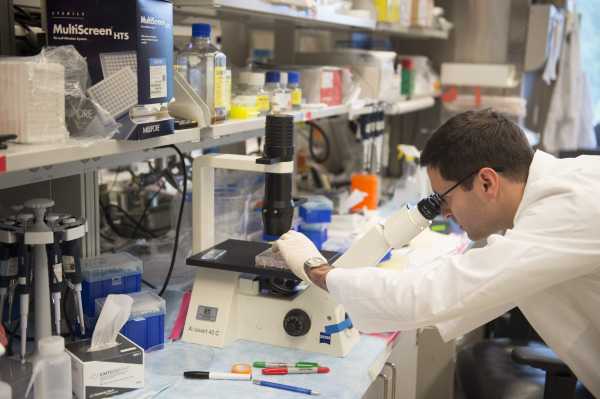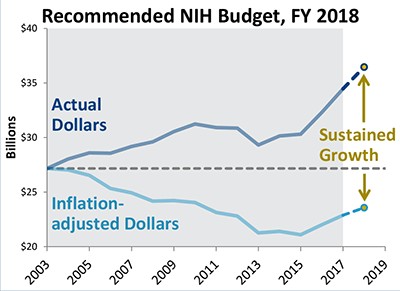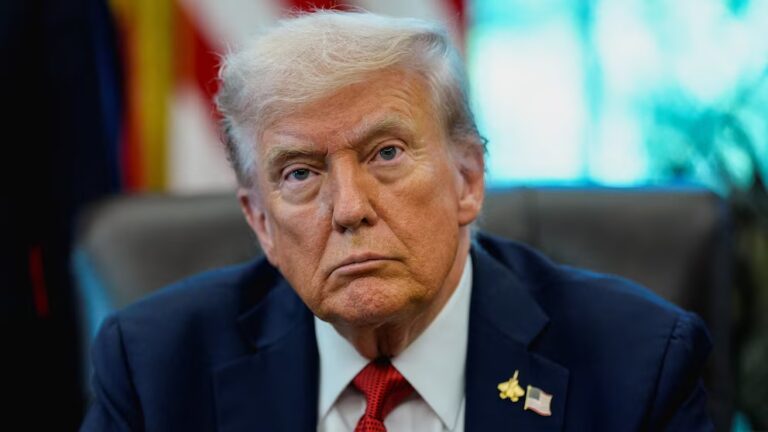
At the outset, it looked like things could get pretty grim at the National Institutes of Health under President Donald Trump.
As a candidate, he said he had heard “terrible” things about the nation’s premier medical research institute. In his first White House budget, Trump proposed cutting the NIH’s roughly $30 billion budget by $6 billion, which would have been a devastating blow after years of stagnant funding. His health secretary defended the proposed cuts by arguing there was a lot of wasted spending in the agency’s budget.
vox-mark
VoxCare
Subscribe
By signing up, you agree to our Privacy Policy and European users agree to the data transfer policy.
For more newsletters, check out our newsletters page.
But NIH has quietly mounted a comeback from those difficult early days, one of the most unlikely agencies to emerge so strong during the first year of the Trump administration.
”Things have been going pretty well at NIH” is how one staffer at a major disease research organization summed it up to me, a view shared by several other sources in that world.
The feather in NIH’s proverbial cap was last week’s omnibus spending deal, which provided $3 billion in fresh federal funding for medical research. That’s after receiving a $2 billion boost from Congress last year in spite of the White House’s initial wishes.
The NIH’s budget is now $37 billion under Trump, a historic high in actual dollars and a number that finally, after years of neglect, begins to make up for the losses the agency has seen when you account for inflation.

A few things are working in NIH’s favor. Medical research is one of the last bastions of genuine bipartisanship (as long as we set aside, say, stem cells and a few other contentious areas) and even Republicans in Congress were critical of the White House’s proposed cuts.
In addition, Trump actually decided to keep President Obama’s NIH director, Francis Collins, and Collins agreed to stay. The director is widely respected both on Capitol Hill and out in the research world — he’s not without critics, but there aren’t many better agency frontmen and Collins has proved adept at navigating Trump’s Washington (or, to put it another way, he’s mostly avoided the spotlight that has weakened other prominent appointees).
”Dr. Collins plays a huge role in ensuring NIH is receiving the necessary resources to launch and continue this research,” Suzanne Folkes at the advocacy group Research!America told me.
This is really important stuff: NIH is responsible for a lot of the basic research that undergirds the development of better drugs and vaccines. As STAT reported last month, a recent study found that of the 210 drugs that were approved in the United States from 2010 to 2016, every single one of them had benefitted in some way from federally funded research.
Major projects from the Obama administration, like Joe Biden’s cancer moonshot, have continued. Colins’s own pet project, precision medicine, is ongoing and just launched in earnest its effort to collect medical, genetic, and other data from one million patients that would provide the backbone for the project’s vision of more personally tailored medical treatments.
None of this was a given, considering Trump’s rhetoric coming into office and his administration’s early proposals. With a little luck, it’ll keep going: Lawmakers have said that they want to give the NIH at least one more big funding bump.
These days, we really can’t take for granted this kind of unqualified and unpoliticized success.
This story appears in VoxCare, a newsletter from Vox on the latest twists and turns in America’s health care debate. Sign up to get VoxCare in your inbox along with more health care stats and news.
Sourse: vox.com






